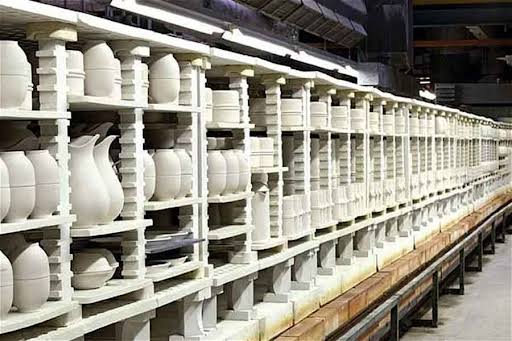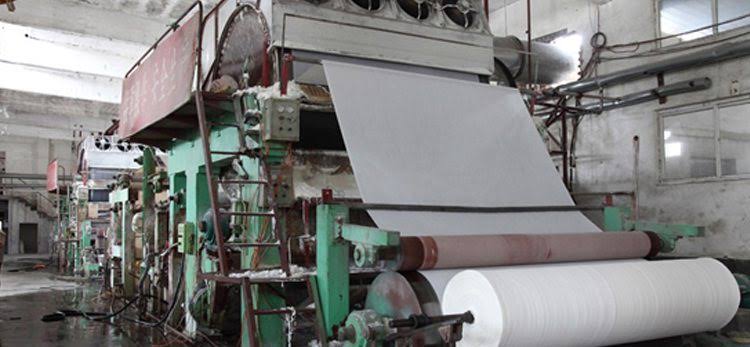Top 5 Industrial Uses of CMC Mineral
18, Oct 2022
CMC, formally known as Carboxymethyl cellulose, is a naturally occurring mineral. It is formed when alkali cellulose is made to react with monochloroacetic acid (MCA) in the presence of a catalyst. In the market, it is mostly employed as a sodium salt (sodium carboxymethyl cellulose). Functionally, CMC serves as a thickener, stabilizer, and suspending agent across various industries. It is employed in textile, food & beverages, mining, cosmetics, pharmaceuticals, paper, tile and ceramic, adhesive, resin, and welding electrode industries, among others.
CMC Properties & Demand in the Market:
CMC mineral, also known as cellulose gum, has several properties that make it highly usable across a wide range of industries. Several properties of CMC are:
- It has the perfect combination of versatility & stability.
- It can be utilized as a flow agent, adhesive, stabilizer, emulsifier, thickening, glue, and viscosity controller.
- It is resistant to oil, wax, grease & other organic material.
- It has good thickening, dispersing, and emulsifying effects
- It has a high viscosity, is non-toxic, and is non-allergenic.
- It has moisture sorption properties & enables water binding.
- It readily dissolves in water.
- The use of it in biological systems, as well as the food, pharmaceutical, and cosmetic industries, is safe.
- Because of its polymeric structure and high molecular weight, it can be used as a filler in biocomposite films
The demand for CMC minerals is huge because of their numerous properties. The CMC market was valued at around USD 1.29 billion in 2020. A high-grade CMC mineral at affordable prices is our strategy to satisfy this demand.
Now, let's talk about the uses of CMC minerals across various industries. Here is a list of the top 5 industries that employ CMC minerals in manufacturing their products:
In general, CMC is divided into two categories of usage: one is for industrial use and another one is for the food & pharmaceutical industry.

1. CMC for Ceramic Industry:
CMC mineral is used in the ceramic industry as a plasticizer and adhesive. Adding CMC to your ceramic manufacturing will help in increasing the fluidity of slurry, reduce water content, speed up powder production, and use less energy during production.
CMC also helps in increasing the mechanical strength of the blank making it easier to form and enhancing its stability. The ceramic blank developed using CMC will be more uniform and strong.
It is also used as a film-forming & color-fixing agent in the manufacturing of glazes for ceramic tiles. It adds strength to the powder that combining glaze and blanks and makes the glaze stable at dispersing state. CMC also minimizes color variations caused by unstable glazing during manufacturing.

2. CMC for Detergent Industry:
CMC is a surfactant with hydrophilic groups and hydrophobic groups. It has a highly effective anti-adsorption property too. Simply put, it can prevent dirt from re-depositing on the laundry, and keep white fabrics white, and colored fabrics bright in color. Its properties of emulsification and protective colloids are employed in the manufacturing of detergent liquid. For the gum base in toothpaste, a glycerin aqueous solution of CMC is employed.

3. CMC for Pharmaceutical Industry:
CMC mineral has wide usage in the pharma industry. It is used as an emulsion stabilizer of injections, and the adhesion & film-forming agents of tablets. CMC is used as the adhesive, tablet disintegrant, and suspension agent because it has the right viscosity.

5. CMC for Food & Beverage Industry:
The food sector uses CMC as a thickener for ice cream, canned and instant noodles, a stabilizer for beer froth, and as a thickener and binder for jams, syrups, fruit juice, sweets, ice creams, and other foods with a high degree of replacement. CMC is completely safe to be consumed and is the best food additive for enhancing product flavor and extending shelf life.

6. CMC for Paper industry
Properties like high water retention and emulsification make CMC a highly sought-after mineral for the papermaking industry. It is a powerful dispersant and adhesive. It can efficiently strengthen the binding between pulp fibers and increase the uniformity and tensile strength of paper by adding to the wet end of the papermaking process. It also serves as a smoothing and sizing agent in the paper industry.
Consult us about the grade of CMC mineral that can improve your product quality & reduce your manufacturing cost. Get exclusive quotes TODAY!
Wondering where to begin?


 Address:
H42C & H43F, RIICO Industrial Area, Chirawa, Rajasthan 333026
Address:
H42C & H43F, RIICO Industrial Area, Chirawa, Rajasthan 333026 +91 637 797 0211
+91 637 797 0211